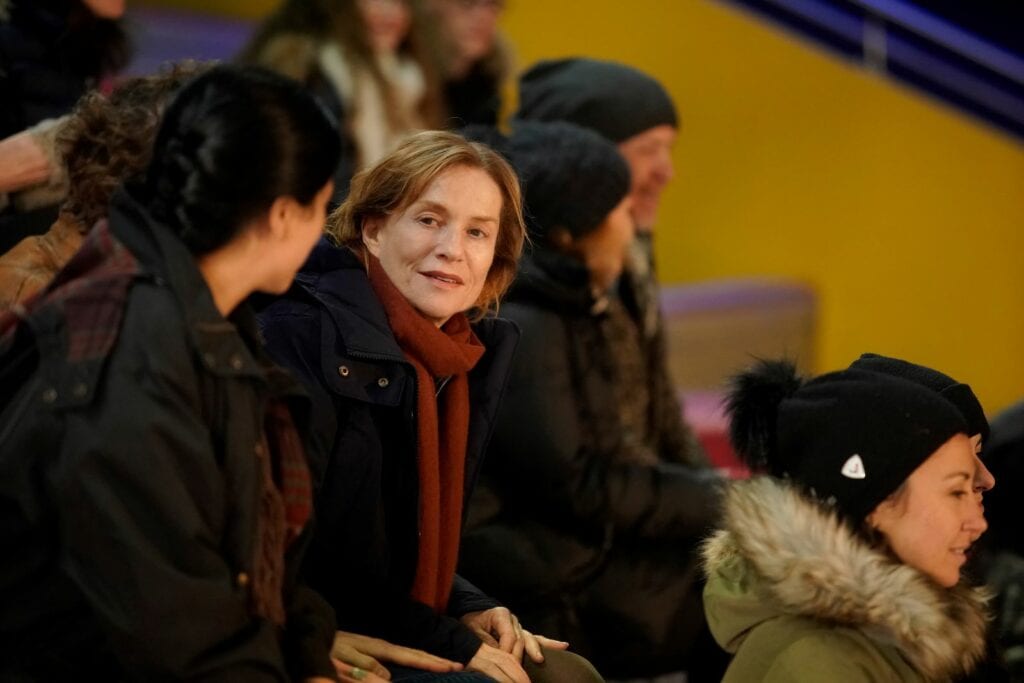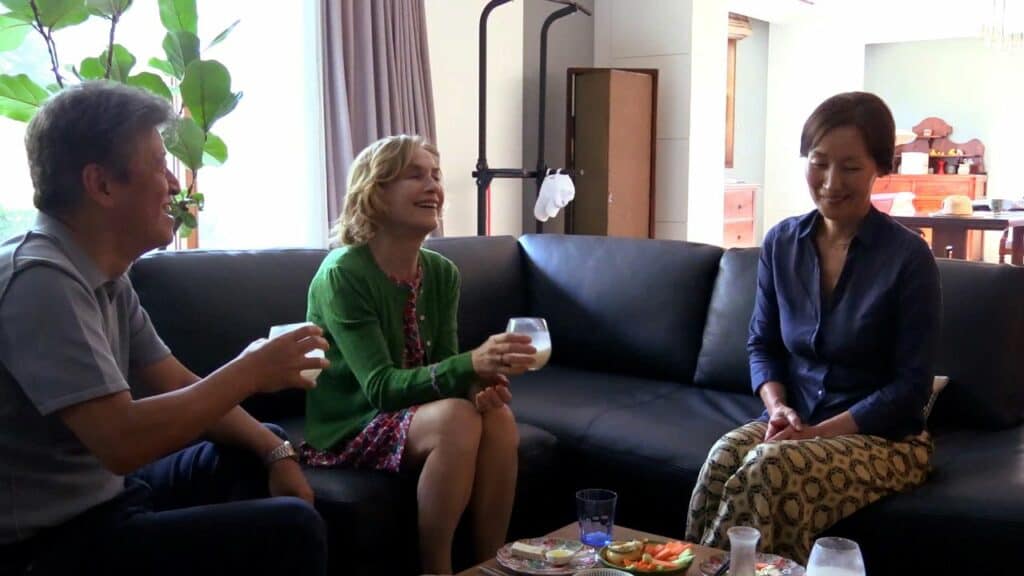Isabelle Huppert was awarded an honorary Golden Bear at the 2022 Berlinale. However, she was unable to attend then, but now she was back in Berlin with two films. A Traveler’s Needs (Yeohaengjaui Pilyo) by Hong Sang-Soo, and Les gens d’à côté by André Téchiné.The latter has a stupid English title that I don’t remember. I asked My New Friends about it, but they didn’t know either. The film reunites Huppert and Téchiné 45 years after Les soeurs Brontë (The Brontë Sisters 1979). It’s the 25th feature of the director, who turned 80 last year. Incidentally, he is an old favourite of mine, even if old might be the operative word.
Works such as Barocco (1976), Hôtel des Amériques 1981), and Les Innocents (1987), featuring a memorable turn from Sandrine Bonnaire, have made Techiné’s output among the most essential in French cinema. Occasionally, he leans too heavily on the script, like in Les Voleurs (1996), which didn’t stop the film from becoming immensely popular. Regarding his later output, Quand on a 17 (Being 17), which premiered at the 2015 Berlinale, might be among his stronger efforts. It was co-written by Celine Sciamma and Régis de Martrin-Donos. The latter collaborated on Les gens d’à côté as well.

Les gens d’à côté introduces us to Lucie (Huppert), a police forensics specialist. Since her husband, who was also a colleague, committed suicide, she has been relegated to desk work. One day, a new family moves in next door. Lucie finds an instant connection with the daughter, but what is up with the father of the house? Why isn’t he able to attend his own art exhibition? The answer is connected to her profession. The film begins with a public demonstration where the police force points out how dangerous their job is and the toll it has taken on themselves and colleagues who are no longer among them. Some critics seem to regard this perspective as provocative.
Years ago, I met a Berlinale goer who only watched films in the Panorama section and got quite agitated whenever a film in that strand was too arty and complained that it belonged in the Forum section instead. I tend to do the opposite and avoid Panorama films. However, Les gens d’à côté has a few unexpected developments and keeps momentum throughout its brief running time. Considering that the competition this year included potboilers like Sons (Vogter), Another End, and A Different Man, Téchiné’s film wouldn’t have been out of place in the main section this year. It’s a solid affair both in outline and execution. 1I also watched Faruk in the Panorama section.
Isabelle Huppert rejoins Hong Sang-Soo
Hong Sang-Soo’s latest film appeared in the competition. That is not a shocking fact, considering how many of his numerous films have been screened in that slot during the latest Berlinale editions.2His previous work, mul-an-e-seo (In Water), was presented in the Encounters section. Hong is yet another old favourite director of mine. His first five films are among the most memorable runs in recent cinema, and I later screened several of those works in film classes as well. However, those films were made two decades ago. In those days, his works were mainly screened in Cannes side sections and made little waves outside a limited circuit.
Flash forward twenty years, and things look somewhat different. Hong has become highly prolific. A Traveler’s Need is his 31st film and seventh in the Berlinale competition, where the last five have been presented in the last five years. Those figures were gleefully presented by head programmer Mark Peranson during the press conference. He clearly belongs to the group of people who still seem to believe that Hong is a major filmmaker. When Carlo Chatrian presented the selection, there was no mention of Hong, and I was hoping that this would be the break of his ubiquitous presence. That hope was thwarted with the very last film presented.

Chatrian also informed us that “Hong Sang-Soo’s films may look alike only to those who are not curious enough to read within and between the shots.” So, colour me incurious. Hong himself said during the awards presentation that he doesn’t understand what people see in this film. I echo that sentiment but without any irony. It was some time ago when I found any true value in a Hong film. The festival critics seem to relish the director, but not always in the most profound way. During the 2020 Berlinale press screening of The Woman Who Ran (Domangchin yeoja), the attendants exploded in laughter solely at the zooming in on a cat.
In the new work, Huppert’s character is a Frenchwoman who teaches French in Seoul. As a teacher, she is even worse than Miss Novak in Club Zero, albeit less harmful to her students. Nevertheless, she seems to be growing her clientele, and in the process, she drinks copious amounts of makgeolli. The fact that the choice of drink has changed from soju might be one of the subtle changes that critics claim are present in Hong’s later films. Otherwise, we are treated to the usual alcohol-fuelled arguments. One of the least tedious ones concerns Huppert’s characters’ living arrangements. There is also a poem carved into a rock, which might or may not have significance. It doesn’t really matter either way.
Even if A Traveler’s Needs is less of an eyesore than last year’s In Water, both films make one wonder if Hong is actually pranking the spectators/critics and is conducting some weird experiment with how diluted his films can become before any producer or critic reacts.

